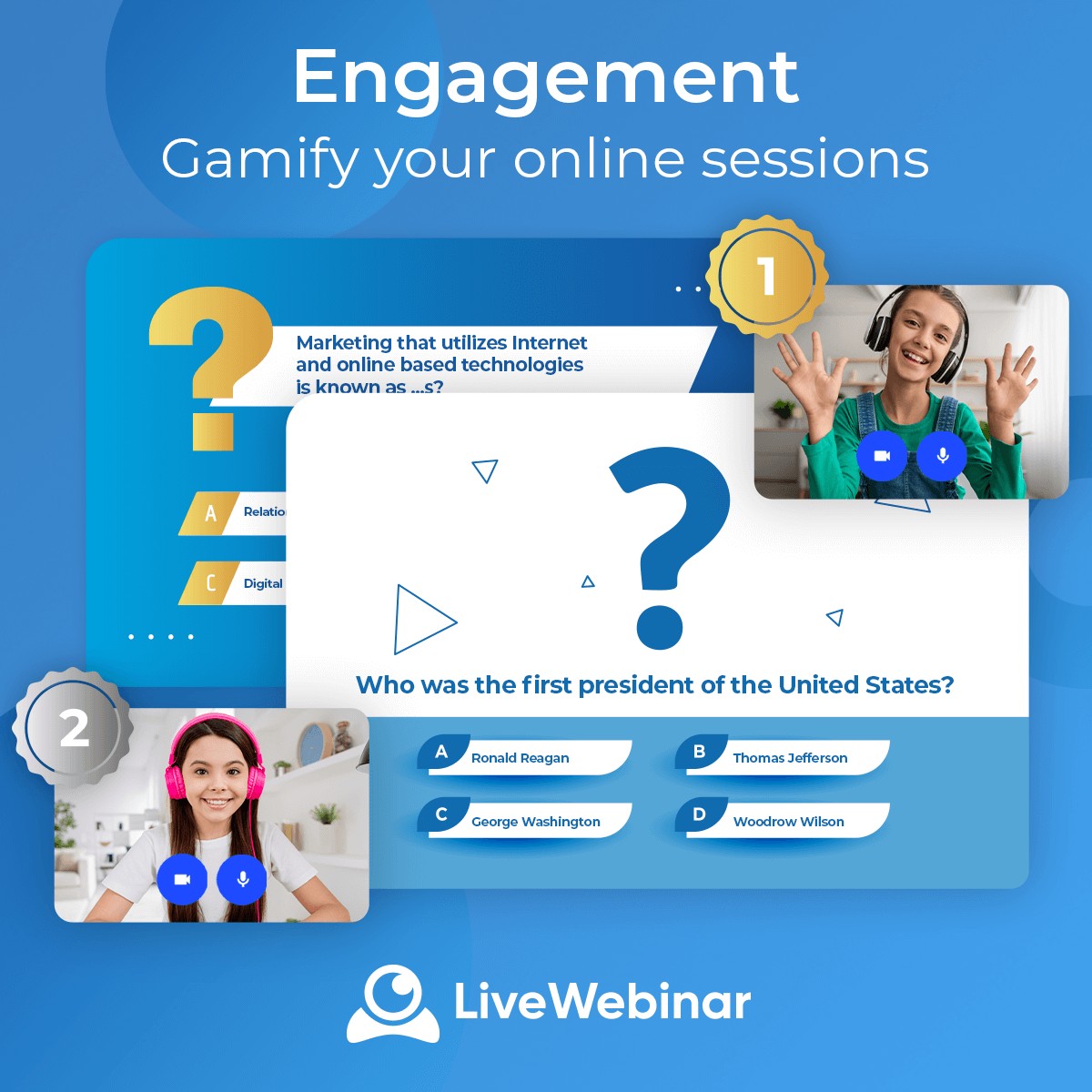Are you curious about what a seminar truly is and how it can benefit you? At WHAT.EDU.VN, we provide clear and concise answers to all your questions, including the definition, purpose, and advantages of attending seminars, along with related educational events. Discover the value of seminars and explore different learning environments.
1. Defining A Seminar: An Educational Gathering
A seminar is essentially a focused educational gathering, often described as a panel discussion, where a small group of individuals convene to explore a specific topic or subject. These sessions are designed to be interactive, encouraging participants to share their ideas, insights, and experiences. Seminars typically involve a leader or facilitator, someone with expertise in the subject matter, who guides the discussion and provides valuable information. The goal is to foster a collaborative learning environment where everyone can enhance their understanding and knowledge.
1.1 The Core Components of a Seminar
Seminars distinguish themselves through several key components. First and foremost, they are interactive. Unlike traditional lectures, seminars encourage active participation from all attendees. This means asking questions, sharing personal experiences, and engaging in thoughtful discussions. The presence of a knowledgeable leader is also crucial. This individual guides the discussion, provides expert insights, and ensures that the seminar remains focused on its core objectives. Finally, seminars are typically smaller in size, allowing for more personalized attention and a greater opportunity for each participant to contribute.
1.2 Seminars vs. Other Educational Formats
Understanding the differences between seminars and other educational formats is essential. Seminars differ from lectures in their emphasis on interaction and discussion. While lectures are primarily one-way communication, seminars encourage dialogue and collaboration. They also differ from workshops, which tend to be more hands-on and focused on developing specific skills. Seminars, on the other hand, are more focused on exploring ideas and concepts in depth. Compared to conferences, which are larger and more diverse events, seminars offer a more intimate and focused learning experience.
2. The Purpose and Objectives of Seminars
Seminars serve a variety of important purposes. They provide a platform for in-depth exploration of specific topics, allowing participants to delve into complex issues and gain a deeper understanding. Seminars also foster critical thinking skills. By engaging in discussions and debates, attendees learn to analyze information, evaluate different perspectives, and form their own opinions. Furthermore, seminars offer valuable networking opportunities, connecting individuals with shared interests and expertise. This can lead to collaborations, mentorships, and career advancements.
2.1 Knowledge Sharing and Acquisition
One of the primary objectives of a seminar is to facilitate knowledge sharing and acquisition. Participants have the opportunity to learn from experts and peers, expanding their understanding of the subject matter. Seminars often present cutting-edge research, innovative ideas, and practical insights that are not readily available elsewhere. This can be particularly valuable for professionals seeking to stay up-to-date with the latest trends in their field.
2.2 Developing Communication and Presentation Skills
Seminars provide a safe and supportive environment for developing communication and presentation skills. Participants are encouraged to express their ideas clearly and confidently, whether through formal presentations or informal discussions. This can help individuals overcome their fear of public speaking and improve their ability to articulate their thoughts effectively.
2.3 Building a Community of Learners
Seminars play a vital role in building a community of learners. By bringing together individuals with shared interests, they create a space for collaboration, mentorship, and mutual support. This sense of community can extend beyond the seminar itself, fostering ongoing relationships and collaborations.
3. Exploring the Different Types of Seminars
Seminars come in various forms, each tailored to specific needs and objectives. Academic seminars are commonly held in universities and colleges, providing students with an opportunity to engage in in-depth discussions and explore advanced topics. Professional seminars, on the other hand, are designed for working professionals seeking to enhance their skills and knowledge. These seminars often focus on practical applications and industry best practices. Online seminars, or webinars, have become increasingly popular, offering a convenient and accessible way to learn from anywhere in the world.
3.1 Academic Seminars: Deepening Scholarly Understanding
Academic seminars are an integral part of higher education. They provide students with an opportunity to delve deeper into specific subjects, engage with research, and develop their critical thinking skills. These seminars often involve student presentations, group discussions, and debates, fostering a collaborative learning environment. Academic seminars can also help students prepare for graduate studies or research careers.
3.2 Professional Seminars: Enhancing Career Skills
Professional seminars are designed to help working professionals enhance their skills, knowledge, and career prospects. These seminars often focus on practical topics such as leadership, communication, project management, and technical skills. Professional seminars can also provide valuable networking opportunities, allowing attendees to connect with peers and industry experts.
3.3 Online Seminars (Webinars): Accessibility and Convenience
Online seminars, or webinars, have revolutionized the way people learn and share information. These virtual events offer a convenient and accessible way to participate in seminars from anywhere in the world. Webinars typically involve a presenter who shares information through slides, videos, and live demonstrations. Attendees can ask questions, participate in polls, and engage in discussions through chat features.
4. The Benefits of Participating in Seminars
Participating in seminars offers numerous benefits. Seminars provide access to expert knowledge and insights, allowing attendees to learn from leading professionals in their field. They also foster networking opportunities, connecting individuals with shared interests and expertise. Seminars can enhance critical thinking skills, improve communication abilities, and boost career prospects.
4.1 Access to Expert Knowledge and Insights
Seminars provide a unique opportunity to learn from experts in a specific field. These experts share their knowledge, insights, and experiences, providing attendees with valuable information that may not be readily available elsewhere. This can be particularly beneficial for professionals seeking to stay up-to-date with the latest trends and developments in their industry.
4.2 Networking and Collaboration Opportunities
Seminars bring together individuals with shared interests and expertise, creating a valuable networking opportunity. Attendees can connect with peers, mentors, and potential collaborators, fostering relationships that can lead to career advancements, joint projects, and mutual support.
4.3 Enhanced Critical Thinking and Problem-Solving Skills
Seminars encourage active participation and critical thinking. Attendees are challenged to analyze information, evaluate different perspectives, and form their own opinions. This can enhance their critical thinking and problem-solving skills, making them more effective in their professional and personal lives.
4.4 Improved Communication and Presentation Abilities
Seminars provide a supportive environment for developing communication and presentation skills. Attendees are encouraged to express their ideas clearly and confidently, whether through formal presentations or informal discussions. This can help individuals overcome their fear of public speaking and improve their ability to articulate their thoughts effectively.
4.5 Career Advancement and Professional Development
Participating in seminars can significantly boost career prospects and professional development. Seminars provide attendees with valuable knowledge, skills, and networking opportunities that can enhance their performance in their current roles or open doors to new career paths.
5. Essential Elements for a Successful Online Seminar
Creating a successful online seminar requires careful planning and attention to detail. Engaging content is paramount, ensuring that the information is relevant, interesting, and delivered in a compelling manner. Expert speakers are crucial, bringing credibility and valuable insights to the event. Finally, follow-up materials and actions help to reinforce learning and maintain engagement after the seminar has concluded.
5.1 Engaging Content: Captivating Your Audience
The content of your online seminar is the most critical factor in its success. To make your content engaging, consider the following tips:
- Deliver Lively Presentations: Use visuals, stories, and humor to keep your audience interested.
- Share Your Screen: Demonstrate processes or showcase examples in real-time.
- Virtual Whiteboard: Use a virtual whiteboard for brainstorming and interactive exercises.
- Q&A Mode: Dedicate time for answering questions and addressing concerns.
- Interactive Quizzes and Polls: Assess understanding and gather feedback.
- Multimedia: Incorporate videos, audio clips, and animations to enhance the learning experience.
- Enable Chat: Allow participants to share ideas and ask questions throughout the seminar.
- Breakout Groups: Divide participants into smaller groups for focused discussions.
- Emojis: Use emojis to gauge audience reactions and add a touch of personality.
- Virtual Backgrounds: Choose a background that is visually appealing and relevant to your topic.
5.2 Expert Speakers: Building Credibility and Trust
Choosing the right speakers is essential for the success of your online seminar. Look for speakers who are:
- Well-Recognized Experts: Have the necessary qualifications, experience, and a solid reputation in their field.
- Experienced Speakers: Comfortable presenting online and engaging with a virtual audience.
- Passionate: Enthusiastic about their topic and able to convey their knowledge effectively.
- Diverse: Offering a range of perspectives and experiences.
Here are some key points to remember when selecting speakers for your online seminar:
- Evaluate Expertise: Review their qualifications, experience, and publications.
- Speaking Skills: Watch recordings of their previous presentations.
- Online Technology: Ensure they are comfortable with the online platform and tools.
- References and Reviews: Check feedback from previous speaking engagements.
- Interview: Discuss content and expectations.
- Diversity: Aim for a range of perspectives and experiences.
5.3 Follow-Up Material and Actions: Reinforcing Learning
Following up after the seminar is crucial for reinforcing learning and maintaining engagement. Here are some essential follow-up steps:
- Thank-You Emails: Send personalized emails to all participants within 24 hours.
- Surveys and Feedback: Ask attendees about their experience and suggestions for improvement.
- Share Recorded Session: Provide a link to the recording so attendees can revisit the content.
- Additional Resources: Share articles, e-books, whitepapers, or relevant blog posts.
- Certificates: Distribute personalized certificates of participation.
- Future Events: Inform participants about upcoming seminars or events.
6. Best Practices for Organizing a Seminar
Organizing a successful seminar requires careful planning and execution. Start by selecting a reliable webinar platform that offers the features and functionality you need. Prepare engaging activities to keep attendees interested and involved. Define your team roles and responsibilities to ensure a smooth and efficient event. Promote your event effectively to attract a large and engaged audience. Finally, analyze your performance to identify areas for improvement in future seminars.
6.1 Selecting a Reliable Webinar Platform
Choosing the right webinar platform is crucial for the success of your online seminar. When evaluating platforms, consider the following factors:
- Ease of Use: The platform should be intuitive and easy to navigate for both organizers and attendees.
- Customization: Look for platforms that offer flexible branding options to customize the look and feel of your event.
- Engagement Features: Choose a platform with interactive tools like polls, Q&A sessions, and breakout rooms.
- Technical Support: Ensure the platform offers reliable customer support to assist with any technical issues.
- Compatibility: Check compatibility with your existing systems and devices.
- Scalability: Select a platform that can accommodate your future growth.
6.2 Engaging Activities
To keep potential attendees engaged throughout the seminar, it’s important to have fun and interactive activities. Try to include some open-ended questions, games, and more hands-on activities to keep the seminar interesting and engaging for everyone.
- Use polls and surveys to gather feedback.
- Start the seminar with an icebreaker poll.
- Incorporate interactive quizzes and trivia questions.
- Enable live chat or Q&A sessions.
- Organize interactive breakout sessions and group activities.
By incorporating these engaging activities, you can create a dynamic and memorable online seminar experience for your audience.
6.3 Define your Team
Inviting outside speakers can help a group with different perspectives on a certain topic or industry. This will give participants the opportunity to gain additional insights and examples from a range of professionals and experts.
- Webinar host or a presenter
- Moderator
- Technical support staff
- Marketing and promotional team
6.4 Promoting Your Event
Promoting your seminar online is essential for attracting attendees and generating interest in your event. Here are some detailed steps to effectively promote your seminar:
- Share information about your seminar on popular social media platforms such as Facebook, Twitter, LinkedIn, and Instagram.
- Send out email invitations to your contacts and mailing list subscribers to inform them about the upcoming seminar.
- List your seminars on dedicated webinar listing sites and event directories like Eventbrite, Meetup, and Eventful.
- Partner with influencers and industry experts.
- Write blog posts, articles, or whitepapers that provide valuable insights and tease the content of the seminar.
- Encourage early registration by offering special discounts or incentives to attendees who sign up for the seminar in advance.
By implementing these strategies, you can effectively promote your seminar online and increase attendance, ensuring that your event reaches and engages with your target audience.
6.5 Analyzing Your Performance
The main difference between a successful seminar and an unsuccessful one is the ability to analyze your performance. Evaluating the entire process will help you identify what worked well, what didn’t, and how you can make improvements in future events.
To analyze webinar performance effectively, you can utilize various tools and techniques. Start by tracking basic metrics such as attendance rate, viewer engagement (e.g., average watch time, interaction with polls or Q&A), and registration-to-attendance conversion rate. Then, dive deeper into more advanced metrics such as audience demographics, source of registration, and conversion funnel analysis.
Consider using webinar platform analytics, Google Analytics, or third-party analytics tools to gather and analyze data. However, the best webinar platforms have advanced analytics inbuilt into the tool, so you don’t need other tools to measure engagement.
7. Common Questions About Seminars
Here are some frequently asked questions about seminars:
| Question | Answer |
|---|---|
| What is the ideal length of a seminar? | The ideal length depends on the topic and audience, but generally, 1-3 hours is a good range. |
| How do I choose the right seminar for me? | Consider your interests, goals, and current skill level. Read reviews and check the speaker’s credentials. |
| What should I do to prepare for a seminar? | Review the agenda, research the speakers, and come prepared with questions. |
| How can I make the most of a seminar? | Participate actively, take notes, and network with other attendees. |
| What are the costs associated with attending a seminar? | Costs can vary widely, from free to several hundred dollars, depending on the topic, speaker, and location. Online seminars are often more affordable. |
| Are seminars worth the investment of time and money? | Yes, if you choose the right seminars and actively participate, they can be a valuable investment in your personal and professional development. |
| How do I find seminars in my area? | Check local universities, community centers, professional organizations, and online event listings. |
| Can I get a certificate for attending a seminar? | Some seminars offer certificates of completion, which can be valuable for professional development or continuing education. |
| What are the key differences between a seminar and a workshop? | Seminars are generally more focused on knowledge sharing and discussion, while workshops are more hands-on and focused on skill development. Seminars delve deep into a topic, while workshops help you apply the knowledge and gain practical experience to execute tasks effectively. |
| What makes a seminar engaging and effective? | Engaging content, expert speakers, interactive activities, and a supportive learning environment. |





8. Unlocking Knowledge and Answers with WHAT.EDU.VN
Do you have questions that need answering? Are you seeking a platform where you can freely ask anything and receive insightful responses? Look no further than WHAT.EDU.VN. We are dedicated to providing a space where curiosity is encouraged and knowledge is readily accessible.
At WHAT.EDU.VN, we understand the challenges of finding quick, reliable, and free answers to your questions. That’s why we’ve created a user-friendly platform where you can ask anything that’s on your mind and receive responses from knowledgeable individuals. Whether you’re a student seeking help with homework, a professional looking for industry insights, or simply a curious individual eager to learn, WHAT.EDU.VN is here to help.
We believe that everyone deserves access to free and accurate information. That’s why we’ve made it our mission to provide a platform where you can ask questions without worrying about costs or hidden fees. Our community of experts and enthusiasts is dedicated to providing thoughtful and informative answers to help you expand your knowledge and understanding.
8.1 Got Questions? Get Answers on WHAT.EDU.VN
Are you struggling to find the answers you need? Do you have questions that seem too difficult or complex to tackle on your own? Don’t worry, WHAT.EDU.VN is here to provide the solutions you seek.
Our platform is designed to be intuitive and easy to use. Simply type your question into the search bar, and our system will connect you with relevant information and knowledgeable individuals who can provide assistance. You can also browse our categories to find answers to common questions or explore new topics of interest.
At WHAT.EDU.VN, we believe that learning should be a collaborative and engaging experience. That’s why we encourage our users to interact with each other, share their insights, and provide feedback on the answers they receive. This creates a vibrant community where everyone can learn and grow together.
Contact us:
- Address: 888 Question City Plaza, Seattle, WA 98101, United States
- WhatsApp: +1 (206) 555-7890
- Website: WHAT.EDU.VN
8.2 Your Questions Answered, Absolutely Free
At WHAT.EDU.VN, we are committed to providing a free and accessible platform for knowledge sharing. We believe that everyone should have the opportunity to ask questions and receive answers without financial barriers. That’s why we’ve made it our mission to provide a completely free service for asking and answering questions.
Whether you’re a student, a professional, or simply a curious individual, you can use WHAT.EDU.VN to find the answers you need without spending a dime. We believe that knowledge should be freely available to all, and we are proud to provide a platform that makes this possible.
Conclusion: Seminars as a Gateway to Knowledge and Growth
Seminars are a valuable tool for personal and professional development. They provide access to expert knowledge, networking opportunities, and enhanced skills. By understanding the different types of seminars and following best practices for organizing and participating in them, you can maximize their benefits.
Remember, if you have any questions about seminars or any other topic, what.edu.vn is here to provide you with the answers you need, absolutely free. Visit our website today and start exploring the world of knowledge.